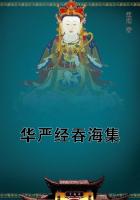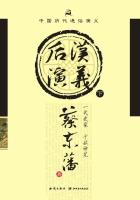It may be inferred that Socrates was in no hurry for those who were with him to discover capacities for speech and action or as inventive geniuses, without at any rate a well-laid foundation of self- control. For those who possessed such abilities without these same saving virtues would, he believed, only become worse men with greater power for mischief. His first object was to instil into those who were with him a wise spirit in their relation to the gods. That such was the tenor of his conversation in dealing with men may be seen from the narratives of others who were present on some particular occasion. I confine myself to a particular discussion with Euthydemus at which I was present.
Or, "as speakers" (see ch. vi. below), "and men of action" (see ch. v. below), "or as masters of invention" (see ch. vii. below).
Or, "but as prior to those excellences must be engrafted in them{sophrosune} (the virtues of temperance and sanity of soul)." Lit. "His first object and endeavour was to make those who were with him {sophronas} (sound of soul) as regards the gods." Reading after Herbst, Cobet, etc., {diegountai}, or if vulg.
{diegounto}, translate, "from the current accounts penned during his lifetime by the other witnesses." For {alloi} see K. Joel, op. cit. pp. 15, 23; above, "Mem." I. iv. 1.
Socrates said: Tell me, Euthydemus, has it ever struck you to observe what tender pains the gods have taken to furnish man with all his needs?
For the subject matter of this "teleological" chapter, see above,I.iv.; K. Joel, op. cit. Appendix, p. 547 foll. in ref. to Dummler'sviews.
Euth. No indeed, I cannot say that it has ever struck me.
Well (Socrates cotinued), you do not need to be reminded that, in the first place, we need light, and with light the gods supply us.
Euth. Most true, and if we had not got it we should, as far as our own eyes could help us, be like men born blind.
Soc. And then, again, seeing that we stand in need of rest and relaxation, they bestow upon us "the blessed balm of silent night."
{kalliston anapauterion}. The diction throughout is "poetical." Yes (he answered), we are much beholden for that boon.
Soc. Then, forasmuch as the sun in his splendour makes manifest to us the hours of the day and bathes all things in brightness, but anon night in her darkness obliterates distinctions, have they not displayed aloft the starry orbs, which inform us of the watches of the night, whereby we can accomplish many of our needs?
e.g. for temple orientation see Dr. Penrose quoted by Norman Lockyer, "Nature," August 31. 1893.
It is so (he answered).
Soc. And let us not forget that the moon herself not only makes clear to us the quarters of the night, but of the month also?
Certainly (he answered).
Soc. And what of this: that whereas we need nutriment, this too the heavenly powers yield us? Out of earth's bosom they cause good to spring up for our benefit; and for our benefit provide appropriate seasons to furnish us in turn not only with the many and diverse objects of need, but with the sources also of our joy and gladness?
Cf. Plat. "Laws," 747 D.
Or, "pleasure."
Yes (he answered earerly), these things bear token truly to a love for man.
Cf. Plat. "Laws," 713 D; "Symp." 189 D. "These things are signs of a beneficient regard for man."Soc. Well, and what of another priceless gift, that of water, whichconspires with earth and the seasons to give both birth and increase to all things useful to us; nay, which helps to nurture our very selves, and commingling with all that feeds us, renders it more digestible, more wholesome, and more pleasant to the taste; and mark you in proportion to the abundance of our need the superabundance of its supply. What say you concerning such a boon?
Euth. In this again I see a sign of providential care.
Soc. And then the fact that the same heavenly power has provided us with fire--our assistant against cold, our auxiliary in darkness, our fellow-workman in every art and every instrument which for the sake of its utility mortal man may invent or furnish himself withal. What of this, since, to put it compendiously, there is nothing serviceable to the life of man worth speaking of but owes its fabrication to fire?
Lit. "and then the fact that they made provision for us of even fire"; the credit of this boon, according to Hesiod, being due to Prometheus.
Or, "no life-aiding appliance worthy of the name." Euth. Yes, a transcendent instance of benevolent design.
Or, "Yes, that may be called an extreme instance of the divine 'philanthropy.'" Cf. Cic. "de N. D." ii. 62.
Soc. Again, consider the motions of the Sun, how when he has turned him about in winter he again draws nigh to us, ripening some fruits, and causing others whose time is past to dry up; how when he has fulfilled his work he comes no closer, but turns away as if in fear to scorch us to our hurt unduly; and again, when he has reached a point where if he should prolong his reatreat we should plainly be frozen to death with cold, note how he turns him about and resumes his approach, traversing that region of the heavens where he may shed his genial influence best upon us.
AsingleMS.insertsapassage{todekaiera... 'Anekphraston}.
i.e. as we say, "after the winter solstice."Yes, upon my word (he answered), these occurrences bear the impressof being so ordered for the sake of man.
Soc. And then, again, it being manifest that we could not endure either scorching heat or freezing cold if they came suddenly upon us, note how gradually the sun approaches, and how gradually recedes, so that we fail to notice how we come at last to either extreme.
Or, "note the gradual approach and gradual recession of the sun- god, so gradual that we reach either extreme in a manner imperceptibly, and before we are aware of its severity."For my part (he replied), the question forces itself upon my mind, whether the gods have any other occupation save only to minister to man; and I am only hindered from saying so, because the rest of animals would seem to share these benefits along with man.















